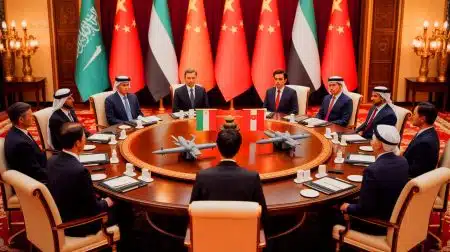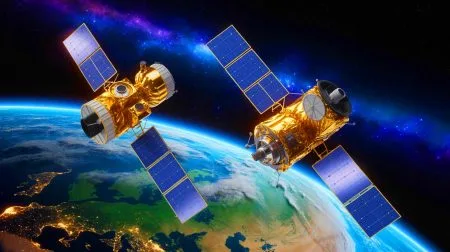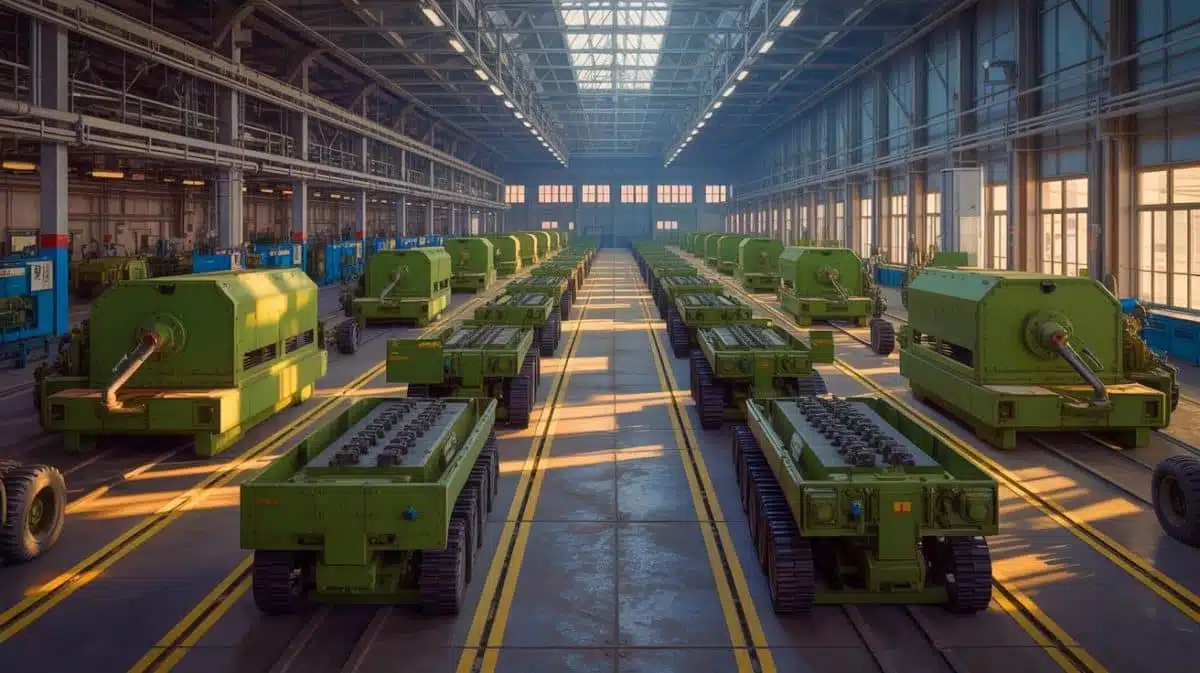| IN A NUTSHELL |
|
In recent years, the geopolitical landscape has been significantly shaped by the ongoing conflict between Russia and Ukraine. As the world watches, the impact of international sanctions on Russia has become increasingly evident, particularly in the military sector. According to a comprehensive study by The Insider, Russia’s imports of goods with potential military applications have been severely affected. In 2024, Russia imported approximately $7.2 billion worth of industrial goods, a sharp decline from the $10.1 billion imported the previous year. This decrease has been felt across various sectors, with the exception of metalworking machinery and measuring instruments.
Decline in Imports and Its Impact
The sanctions have significantly reduced Russia’s ability to import critical industrial equipment and components, essential for its defense industry. Notably, imports from countries such as China, which has been a key supplier for Russia, have decreased drastically. China’s shipments to Russia were reduced tenfold in 2024, a clear indication of the pressure exerted by global sanctions. Moreover, imports of electronic components from the United States, Europe, Japan, and South Korea have been slashed by a staggering 17 times.
These reductions underscore the crippling effect of the sanctions on Russia’s military capabilities. The decline in imports impacts the production of artillery, firearms, drones, electronic warfare systems, and other military technologies. The complex supply chains that Russia relied on to circumvent embargoes are unraveling, resulting in a strategic disadvantage. The industrial machinery that once flowed into Russia through various channels is now facing significant bottlenecks.
Complex Supply Chains Under Strain
The intricate supply chains that Russia has depended on are being tested like never before. These chains included imports from Taiwan, the Czech Republic, Germany, South Korea, and other nations. Critical items such as metalworking machines, milling machines from Israel, Italian metallurgical lines, and Swedish and German coordinate measuring machines have seen a steep drop in availability.
Russia’s defense industry is heavily reliant on these imports to maintain its production lines. The disruption of these supply chains is causing a ripple effect throughout the industry. The primary routes for importing industrial machines into Russia include China, the Eurasian Economic Union, and a network of non-Western countries like Taiwan, Israel, Singapore, Hong Kong, and Turkey. However, the efficacy of these routes is diminishing as manufacturers become more stringent in adhering to export bans.
Emergence of Alternative Supply Routes
Despite the challenges posed by sanctions, Russia is adapting by seeking new supply routes. The Insider reports that unexpected countries such as Gabon, Haiti, and the Democratic Republic of the Congo have emerged as new exporters to Russia. This shift reflects a strategic pivot in sourcing components, emphasizing pre-assembled and customized parts from lesser-known manufacturers rather than established brands.
This approach, however, raises questions about the quality and reliability of the components being acquired. The reliance on a makeshift system may lead to subpar performance of Russian military equipment, potentially impacting the effectiveness of its defense operations. As Russia explores these alternative channels, it must grapple with the balance between quantity and quality in its military arsenal.
Financial and Strategic Implications
The financial implications of the reduced imports are far-reaching. Russia’s budget allocation for industrial goods has diminished, reflecting the strain on its economy. The Insider suggests that stockpiling and modernizing existing production facilities since 2023 might be helping Russia sustain its operations with the equipment already in service. However, the long-term viability of this strategy remains questionable.
Moreover, there are reports of increasing smuggling activities, with Russia allegedly importing numerous goods without declaration. This clandestine approach highlights the desperation to maintain military production despite the sanctions.
The evolving landscape of Russia’s import strategy underscores the profound impact of international sanctions on its defense industry.
As the world keeps a close watch on the unfolding situation, the effectiveness of the sanctions will continue to be a subject of global interest. The shifting dynamics of international trade and the resilience of Russia’s defense sector will play a critical role in the ongoing geopolitical narrative. How will Russia adapt to these constraints, and what strategies will emerge in response to the sustained pressure of international sanctions?
Did you like it? 4.6/5 (25)







Is Russia really struggling as much as the article suggests, or is this just more Western propaganda? 🤔
Wow, it’s crazy to see how sanctions can impact a country’s military capabilities so drastically.
Interesting read, but I wonder how accurate these figures really are.
Thanks for the detailed analysis! It’s fascinating to see the ripple effects of global politics.
So, is Russia turning to places like Gabon and Haiti for military supplies now? That’s wild! 😮
It’s about time the sanctions had a real impact. Hopefully, this will push Russia to rethink its strategy.